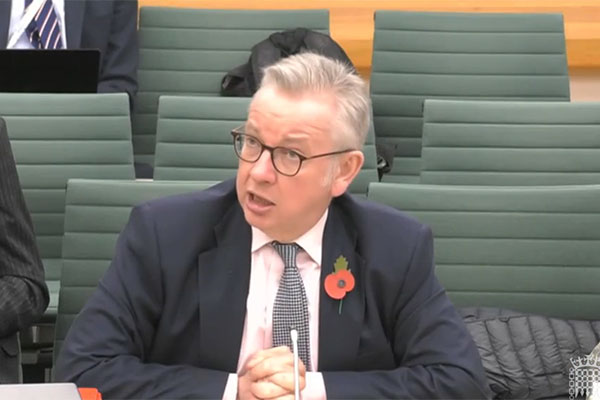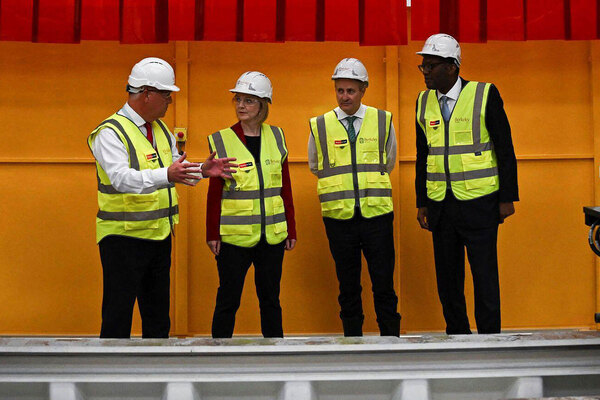Gove commits to 300,000-home target
Housing secretary Michael Gove has reaffirmed the government’s commitment to building 300,000 homes per year by the middle of the decade.

Speaking on the BBC’s Sunday with Laura Kuenssberg show, Mr Gove, who was reappointed as the minister in charge of the Department for Levelling Up, Housing and Communities, said that he was committed to building more homes both for ownership and rent.
Former prime minister Liz Truss initially pledged to scrap the 300,000-home target during her leadership campaign in the summer. She stated that the central-government imposed target was “stalinist” and that she felt it was “the wrong way to generate economic growth”.
Speaking on the politics show, Mr Gove said: “The top-down housing targets that… Liz was referring to are part of a broader and different calculation from the 300,000 in the manifesto.
“My view is that what we do need is a fair way of allocating housing need that takes account of changes in population.”
The 300,000 homes per year target has been part of successive Conservative prime ministers since David Cameron.
However, in May, Mr Gove said he was keen not to be bound by the “arithmetic” of housing targets and added that “it’s no kind of success simply to hit a target if the homes are built are shoddy”.
In his interview on Sunday, Mr Gove did warn, though, that meeting the target would be “difficult” due to economic circumstances, which have left a hole of approximately £40bn in the government’s tax income.
The housing secretary also said that the new investment zones announced by Ms Truss were under review, along with other government spending on areas, such as capital investment.
Commenting on the issue of social landlords and private landlords that are failing to treat their tenants properly, Mr Gove said: “We have new legislation to make sure that central landlords live up to their responsibilities. tougher regulation, a stronger voice for tenants, bigger penalties for social landlords who are keeping people in homes for social rent which are not fit for habitation.
“And we’re also bringing in legislation to deal with the private rented sector as well.”
Sign up for our development and finance newsletter
Already have an account? Click here to manage your newsletters











